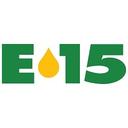Growth Energy CEO Emily Skor congratulated President Donald Trump and Vice President J.D. Vance as they formally took their oaths of office on Jan. 20, noting Trump has promised to fight for farmers and expand ethanol production.
The U.S. EPA on Jan. 17 released updated data showing that more than 25.22 billion renewable identification numbers (RINs) were generated under the Renewable Fuel Standard in 2024, up from 23.85 billion in 2023.
Lee Zeldin, President-elect Donald Trump’s nominee to serve as U.S. EPA administrator, on Jan. 16 responded to questions regarding his support for the RFS, E15 and SAF during a hearing held by the Senate Environment and Public Works Committee.
The U.S. EPA on Jan. 16 released updated small refinery exemption (SRE) data, showing 11 new SRE petitions have been filed under the Renewable Fuel Standard. The agency denied one SRE petition and 139 SRE petitions remain pending.
The PHMSA on Jan. 15 released a proposed rule to implement new safety requirements for CO2 pipelines. Stakeholder concerns regarding the need for updated CO2 pipeline safety regulations has been one issue stalling development of CCS projects.
The USDA on Jan. 15 published an interim rule that establishes guidelines for quantifying, reporting and verifying GHG emissions associated with the production of biofuel feedstock commodity crops grown in the U.S.
Growth Energy releases federal policy roadmap to revitalize rural America and unleash American energy dominance
Growth Energy on Jan. 15 released a roadmap to revitalize rural America, identifying specific policy goals and actions the 119th Congress and the incoming Trump administration should take to expand the use of homegrown American ethanol.
The U.S. Department of Energy on Jan. 15 released the 45ZCF-GREET model. The announcement follows the U.S. Department of the Treasury and Internal Revenue Service guidance on the 45Z clean fuels production credit released on Jan. 10.
The U.S. DOE, USDA and FAA on Jan. 13 released Sustainable Aviation Fuel (SAF) Grand Challenge 2021-2024 Progress Report, which underscores the importance of continued investment in the rapidly growing biofuels industry.
ARPA-E announces $38 Million to develop new technologies to reduce ethanol-related emissions while lowering farmers’ operating costs
On Jan. 10, the U.S. DOE Advanced Research Projects Agency-Energy (ARPA-E) announced $38 million for nine projects to develop technologies that reduce synthetic nitrogen fertilizer use in corn and sorghum farming.
The U.S. Department of Energy Bioenergy Technologies Office (BETO) announced up to $23 million in funding to support research and development (R&D) of domestic chemicals and fuels from biomass and waste resources.
The USDA on Jan. 10 awarded $60 million in Higher Blends Infrastructure Incentive Program grants. The funding supports 70 projects in 24 states that aim to increase consumer access to higher blends of ethanol and biodiesel.
Treasury and the IRS on Jan. 10 released guidance on the 45Z clean fuels production credit, including a notice of intent to propose regulations and a notice providing the annual emission rate table for the credit.
The Missouri Agricultural and Small Business Development Authority (MASBDA) announced it has invested nearly $3.4 million in projects that increase the distribution and use of higher blends of ethanol and biodiesel in the State of Missouri.
The U.S. DOE and the U.S. EPA on Jan. 8 awarded $6 million to three companies that are working to scale up innovative biofuel production technologies, including those focused on SAF and cellulosic ethanol.
USDA announces appointments to the Greenhouse Gas Technical Assistance Provider and Third-Party Verifier Program Advisory Council
The USDA has appointed 36 members to serve on the newly formed Greenhouse Gas Technical Assistance Provider and Third-Party Verifier Program Advisory Council, informally known as the Growing Climate Solutions Act Advisory Council.
The ethanol industry is celebrating the 20th anniversary of the Renewable Fuel Standard and looking ahead to new policy innovations that will boost the farm economy and save rural America.
The USDA’s Commodity Credit Corp. has announced it does not expect to purchase and sell sugar under the Feedstock Flexibility Program for crop year 2024, which runs from Oct. 1, 2024, through Sept. 30, 2025.
The U.K.’s sustainable aviation fuel (SAF) mandate officially came into force on Jan. 1. By law, SAF must now account for at least 2% of all jet fuel in flights taking off from the U.K. The mandate is set to expand to 10% in 2030 and 22% in 2040.
Vertex Energy Inc. could be required to retire over 18.7 million RIN by March 31, 2025, to satisfy its 2023 and 2024 RFS blending obligations under a proposed Consent Decree and Environmental Settlement Agreement lodged by the U.S. government.
While at the 29th United Nations Climate Change Conference (COP29) in Baku, Azerbaijan, USGC promoted ethanol as a way to help countries meet their climate commitments.
The U.S. EPA on Jan. 2 denied two small refinery exemptions (SREs) for RFS compliance year 2023, according to updated data posted to the agency’s online SRE data dashboard. No other actions were taken and 129 SRE petitions remain pending.
The biofuels sector embarks on 2025 facing several headwinds from political and regulatory uncertainty, while tailwinds could continue from strong exports and higher biofuel mandates from countries around the world.
During a hearing held on Dec. 20, Growth Energy urged the U.S. EPA not to retroactively reduce renewable volume obligations (RVOs) for cellulosic biofuels under the Renewable Fuel Standard for compliance year 2024.
The U.S. DOE has announced its intent to issue funding to support high-impact research and development (R&D) projects in two priority areas: sustainable propane and renewable chemicals and algal system cultivation and preprocessing.
The U.S. EPA on Dec. 19 released data showing that 2.03 billion RINs were generated under the RFS in November, up from 2.01 billion generated during the same month of 2023. Nearly 22.9 billion RINs were generated during the first 11 months of 2024.
The U.S. EPA on Dec. 19 released updated small refinery exemption (SRE) data reporting that one new SRE petition has been filed under the Renewable Fuel Standard during the past month. According to EPA, 131 SRE petitions are currently pending.
Ethanol groups are expressing disappointment in the updated short-term funding bill currently under consideration by congress, which has been stripped of language that would have allowed year-round E15 sales nationwide.
The USDA Rural Business Cooperative Service on Dec. 13 announced it is extending the deadline to apply for the agency’s Section 9003 loan guarantee program. Applications must now be submitted before Dec. 31.
Recent nationwide polling conducted by Morning Consult for the RFA shows that 69 percent of registered voters support increasing the availability of E15 to help lower fuel prices and support energy independence.
Advertisement



























